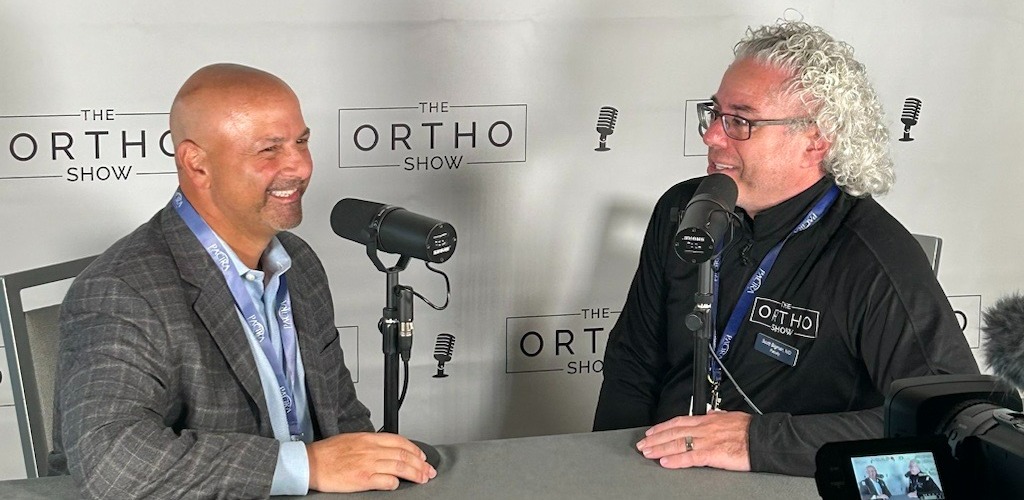Financial Wisdom in Healthcare: 3 Takeaways from Nader Samii’s Interview on The Ortho Show

During a recent episode of The Ortho Show, nimble solutions Executive Chairman, Nader Samii, engages in a compelling conversation with Dr. Scott Sigman on the complexities of revenue cycle management for orthopedic surgery centers.
Recorded during OSET, the discussion also touches upon a range of topics, from nimble’s recent rebrand to the intricacies of today’s orthopedic landscape, plus Nader’s transition from a career in investment banking to becoming the CEO of an industry-leading revenue cycle management company.
In this blog post, we’ll recap the top three takeaways from The Ortho Show conversation.
1. Why an Investment Banking Background is an Asset to Revenue Cycle Management
The world of revenue cycle management revolves around finances and data. To thrive here, you need an analytical mindset to identify growth opportunities and ensure your success.
A background in finance and investment banking merges legal expertise with business acumen. This skill set can serve as a game changer for surgical organizations. It helps them assess which metrics and KPIs should be tracked to improve financial success.
When insightful analytics and business intelligence are applied to revenue cycle management, surgical organizations gain control over managing and growing their bottom line. This data can be utilized for real-time insights on revenue cycle metrics that can be difficult to track manually, such as errors within the claim submission process that contribute to the number of days a claim is in accounts receivable (A/R).
2. How nimble Empowers Surgeons and Maximizes Revenue
Surgical facilities are taking on more cases or a more robust case mix to increase monthly revenue; however, it’s important to consider how to overcome the industry’s top challenges including: changes in payer reimbursement and inflated costs for surgical supplies and implants.
Often, the thin margin between profit and loss hinges on the successful collection of payment from each claim submission. Plus, surgical billing is more complex than ever due to changing regulations, the increased number of employer / narrow networks and high deductible plans that leave much of the financial obligation in the patient’s hands.
In an industry where billions of dollars are left on the table annually, surgical RCM expertise is crucial in supporting talented surgeons in maximizing their earnings and capturing the full value of their services.
3. The Complexities of Revenue Cycle Management
Effective revenue cycle management involves navigating a complex web of factors. For example, well-negotiated managed care contracts are critical to success, since they serve as the baseline for payment.
Contract management, or the process of reviewing managed care contract terms and evaluating if those terms can be improved, requires knowledge and expertise, especially since payer updates can impact existing contract terms. This process includes a chargemaster analysis to detail reimbursement by payer and a case costing analysis to measure the maximum profitability on each case according to each payer’s reimbursement methodology.
After contract management, the intricacies of the revenue cycle continue throughout the entire episode of care for each patient. One revenue cycle workflow streamlines front-end services, transcription, coding, and billing processes to fine tune the accuracy and turnaround times within each of these processes.
Surgical organizations are increasing their clean claim rate, their rate of collections, and their bottom line with a revenue cycle management partnership that incorporates insightful analytics, surgical expertise, and a tech-enabled RCM workflow.
To gain a deeper understanding of these topics, watch the full episode of The Ortho Show below.